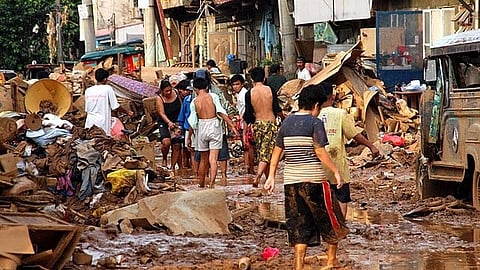
- NEWS
- the EDIT
- COMMENTARY
- BUSINESS
- LIFE
- SHOW
- ACTION
- GLOBAL GOALS
- SNAPS
- DYARYO TIRADA
- MORE

The party-list system in the Philippines was originally designed to provide a platform in Congress for marginalized and underrepresented sectors.
Under the 1987 Constitution, 20% of the seats in the House of Representatives are allocated to party-list groups, with representatives elected through proportional representation. The system was initially exclusive to marginalized and underrepresented sectors, such as workers, farmers, indigenous communities, and women.
However, a 2013 Supreme Court ruling broadened participation, allowing national and regional political parties to join — even those not aligned with a specific marginalized sector. This shift has fueled concerns that traditional political groups and business-backed parties may exploit the system for the power and influence it grants.
Over the years, the system has evolved significantly; likewise, Filipinos' understanding of whether the system fulfills its intended purpose has changed and adapted to the times. One notable question: has it been co-opted by political elites?
According to poll watchdog Kontra Daya, 55.13% of party-list candidates in the 2025 elections do not represent marginalized groups, particularly those linked to political dynasties and big businesses. Among the 1,500+ nominees, the group highlighted Tingog Sinirangan for its ties to the Romualdez clan.
In 2022, Kontra Daya flagged 70% of party-list groups for similar affiliations. While this year’s findings reflect a 20% decrease, Kontra Daya convenor Danilo Arao cautioned that this does not necessarily indicate progress, as deep-seated issues of political influence remain.
Ako Bicol Party-list, on the other hand, has rejected Kontra Daya’s claim that it is linked to big business, stating that the watchdog’s assessment misinterprets the Party-List System Act (Republic Act No. 7941). The law requires party-list groups to submit their constitution, by-laws, platform, and program of government to the Commission on Elections (Comelec), ensuring they advocate for sectors such as labor, farmers, indigenous groups, senior citizens, PWDs, youth, and professionals.
Rep. Raul Angelo Bongalon of Ako Bicol pointed out that the Party-List System Act allows both sectoral and non-sectoral parties — including political parties and organizations advocating for national and regional concerns — to participate in the system. This means groups are not required to be composed exclusively of members of marginalized sectors, as long as their nominees have a proven track record of advocacy for the group they represent.
The Center for People Empowerment in Governance (CenPEG), meanwhile, has criticized the so-called manipulation of the party-list system, saying that many seats intended for marginalized groups have been taken over by political dynasties, retired government officials, and wealthy business interests. CenPEG warns that unless this trend is reversed, it will only deepen elite dominance and limit opportunities for genuine representatives of underrepresented communities.
The group emphasizes that the system was originally designed to amplify the voices of farmers, workers, indigenous peoples, and other historically excluded sectors, but years of permissive court rulings, lax enforcement, and powerful clan or corporate influence have subverted these goals.
CenPEG recommends stricter adherence to the law’s original mandate, more thorough scrutiny of party-list accreditation, the removal of political dynasties and business proxies, and legislative revisions to prevent further exploitation. It also reaffirms its commitment to reforming governance in a way that genuinely serves marginalized sectors rather than entrenched elites.
The party-list system, originally conceived to amplify marginalized Filipinos, took on a broader scope following the 2013 Supreme Court ruling that allowed national and regional political groups to join. This change introduced new participants — including traditional political figures and business-backed organizations — prompting discussions about whether the system still supports those it was meant to represent.
As the 2025 elections draw near and questions persist about its intended versus actual beneficiaries, how might the party-list framework evolve to safeguard genuine representation?
